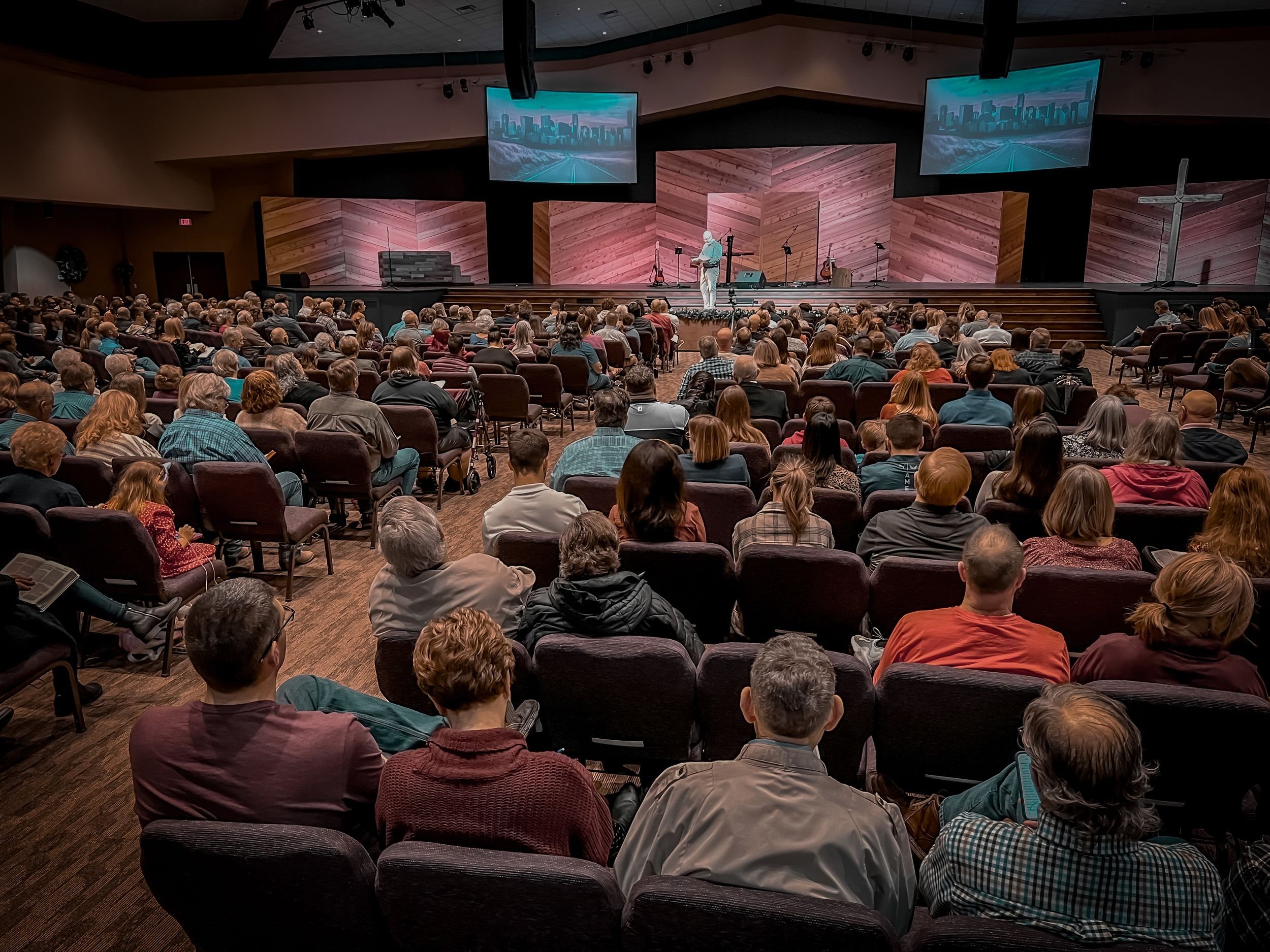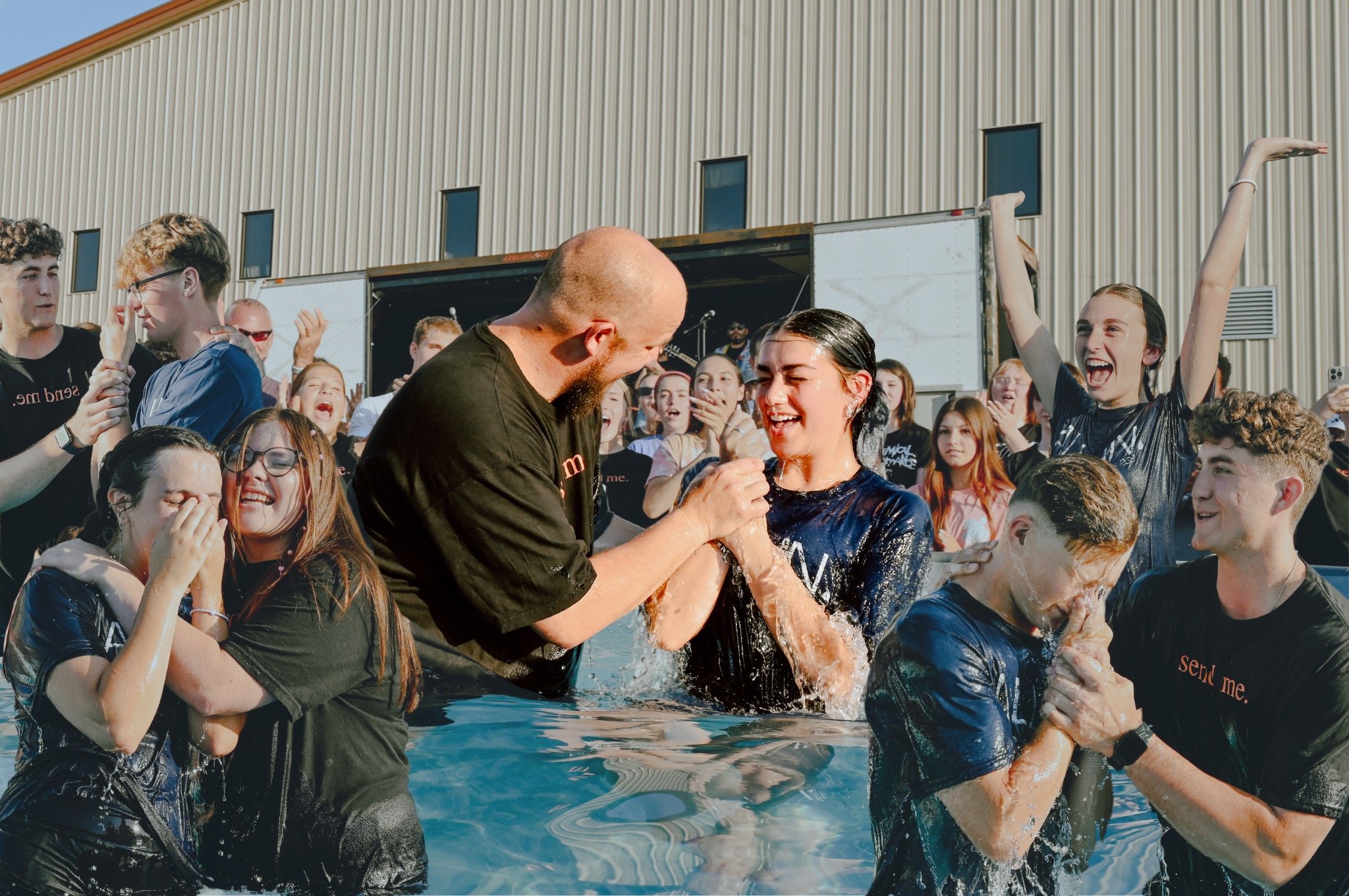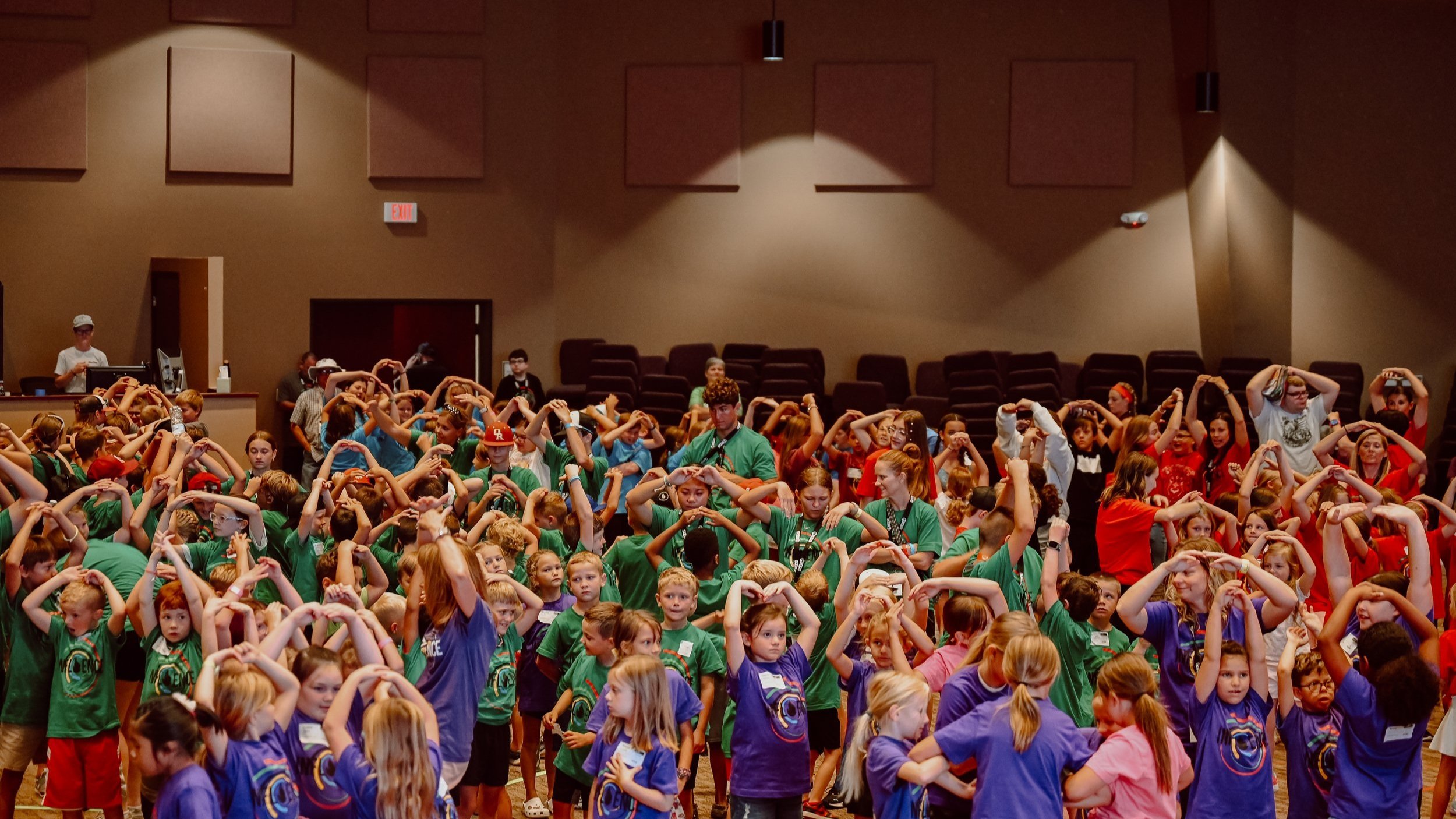
DISCOVER
BYLAWS
“Business” is the word we use to describe how people create value for one another.
Like your family, the church isn't a business, but it has a business life. When it's time for our church to conduct business, with scriptural principles as our foundation, we honor God and one another, building every interaction with integrity, accountability, excellence, and skill.
Select bylaws to explore
click this
click this
click this
FIRSTBAPTIST
OWASSO
Press play to learn how these bylaws empower ministry today and for future generations.
Download bylaws and see changes
Loving all people to Christ and equipping them on their journey with God and one another.
MESA
CHURCH
Press play to learn how these bylaws empower ministry today and for future generations.
Download bylaws
“Mesa” is the Spanish word for “table”. Jesus has invited us to join Him at His table. Relationships are built, and lives are changed when we come to the table. A mesa is a high place where people can draw close to God and one another…together.
We’re planting a new church in the heart of Tulsa and connecting with people in the language of their heart.
theMISSION
CENTER
Press play to learn how these bylaws empower ministry today and for future generations.
Download bylaws
Hope, relationships, and support for our neighbors.
BYLAW
QUESTIONS
Have questions? Join us for a little Q&A!
November 6th or 13th, 8:00pm • Room 800
November 10th, 6:45pm • Fellowship Hall
Voting begins Nov. 6 at 8:00 pm and closes November 17th after Family Matters (8:00 pm).
Why Bylaws Matter
How we do something is as important as what we do.
Bylaws define and reflect the foundation of how we bring our mission to life together. They define our legal structure and provide legal protection.
When tested in a court, the first question asked is, “What do their bylaws say?” The second question is, “Did the church follow their bylaws.”
Why These Changes
While these changes are significant, they will feel familiar.
Scripture is always the foundation of our church. They are the foundation of our bylaws.
These changes reflect ways our church has matured in relation to Elders, the Church Council, and the role of women in leadership.
What Was Our Process
These bylaws were created with the help of the Bylaws Team of First Baptist Owasso, the Board of Directors of theMission Center, and the Planting Team of theMission Church. Multiple attorneys also reviewed them.
The Bylaws Team includes Page Cole, chair; Brad Aylor; Brandon Long; Brenan Fulton; Brittney Musgrave; Chad Balthrop; Chris Wall, Denise Jenney; James Callison; Julie Musser, Misael Gonzalez; and Steve Cole.
Why Now
Our current bylaws require a review every three years. This is part of that regular review.
Our church has grown significantly. We’ve become one church in multiple locations. We’re working to plant a church in Tulsa. We want to honor and protect theMission Center.
Because of growth, this review represents the most significant changes to our bylaws since we began.
Why Two New Sets of Bylaws
theMission Center has grown to serve our community like never before. Today, theMission Center is financially self-sustaining. The purpose of theMission Center creates a unique opportunity for ministry. Creating an independent but interconnected legal structure for theMission Center gives us the freedom we need to honor the unique nature of that ministry while protecting the integrity of our purpose and strengthening the relationship of the church and this ministry of our church.
theMission Church is ready to be sent out from us as an autonomous, self-governing church of its own. Bylaws are one of the first steps in the healthy launch of a brand-new church!
Minor Adjustments
The First Baptist Owasso bylaws were updated with minor grammatical and formatting adjustments throughout, making them easier to read and understand without changing the meaning. Scripture references were also added as footnotes to help us understand the scriptural foundation of our chosen legal practices.
First Baptist Owasso Highlights
Why separate bylaws?
Separate bylaws empower us to magnify our mission everywhere.
For theMission Church, separate bylaws establish that congregation as an autonomous, self-governing church plant.
For theMission Center, separate bylaws open up new opportunities for community partnerships and greater freedom and flexibility for theMission Center leaders while creating a layer of legal protection for both the church and theMission Center. You can learn more in the Q&A sections of each campus.
What has changed in the First Baptist Owasso bylaws?
Download the Bylaws Change Log from the download center on this page for a detailed list of changes.
Elder, Church Council, and Women in Leadership
Over the last three years, God has moved our church to clarify its offices and the role of women in leadership.
Scripture defines two offices, Elder and Deacon.
Elders (pastors, shepherds, overseers, bishops) are men called by God and selected and elected by the church to lead the theological foundation, directional vision, and pastoral care of the church. Deacons support the pastoral staff in the ministry of the Word, care for the needs of the church family, and protect the unity of the church. Elders lead. Deacons serve.
Since 2014, our Church Council has been made up of our Pastoral Leadership Team, three at-large members directly elected by the church, and the chairmen of the Core Ministry Teams (Nominating, Personnel, Finance, Campus Development, Missions, and Deacons). We’ve treated members of the Church Council as though they were elders, which presents two challenges.
Scripturally, elders are ordained to a lifetime office. Additionally, they aren’t simply elected. They are called by God and ordained by the church. While the men who have served on our Church Council are elder-qualified, not all are called to be elders.
These bylaws address this by defining the role of Elder. Currently, this includes five pastors: the Senior, Executive, Groups, Worship, and Mission Pastors. In the future, we will ordain laymen to be elders who are not on staff.
By defining and ordaining Elders, we have refined our Church Council. The Elders are responsible for the theological foundation, directional vision, and pastoral care of the church. The Church Council leads the Core Ministry Teams to protect and implement the Elders' vision.
With this in mind, in the new bylaws, the Church Council will include the Elders, as well as the six chairpersons of the Core Ministry Teams and up to three at-large members elected directly by the church.
Throughout Scripture, Jesus elevates the role of women in ministry. The “Great Commission call” to go into all the world and make disciples is a call for every believer. In Scripture, the only office in the church limited to men is the office of Elder. In these bylaws, because Elders are defined as an office apart from the Church Council, women will be included as potential chairpersons of the Core Ministry Teams and members of the Church Council.
Will we strengthen accountability?
YES! The pastoral staff are the elders of the church called to lead. In the future we will ordain laymen for that role as well. While our pastors lead, they also serve as one under authority. Their leadership is strongest with thoughtful accountability. We’ve strengthened our accountability by including elders on the Church Council but limiting their vote. In matters requiring a vote of the Church Council, the number of employed Elders eligible to vote must equal less than 50% of the Church Council. That means that when it’s time to vote, the volunteers elected by the church to serve on the Church Council will always outnumber the elders who serve on staff.
Additionally, these bylaws increase the super-majority requirement from two-thirds (66%) to three-quarters (75%). For those matters defined in the bylaws that need more than a simple majority, a 75% approval from qualified church members better protects the unity of the church as we move forward together.
Mesa Church Highlights
Why separate bylaws for the new church?
theMission Church is ready to be sent out from us as an autonomous, self-governing church of its own. Bylaws are one of the first steps in the healthy launch of a brand-new church! You may have already caught it - the name of theMission Church will become “Mesa Church!”
How are Mesa Church's bylaws different from First Baptist Owasso’s?
Mesa Church’s bylaws are based on the bylaws of First Baptist Church Owasso. While creating the legal structure for a new, autonomous, self-governing church, Mesa Church's priorities and form of governance reflect those of its parent church, First Baptist Owasso.
Because Mesa Church does ministry in the context of language, the words used to define its leadership structure have been adjusted. At First Baptist Owasso, we have “Core Ministry Teams.” The word “core” in a leadership context does not translate well into Spanish. Therefore, their “Core Ministry Teams” are called “Departments.” Additionally, the number of volunteers required for each Department has been adjusted to reflect the current size of the Mesa congregation.
When will Mesa Church officially begin?
Once the new bylaws are approved, Mesa Church will be legally established, but there’s more work to do. By January 1, 2025, the staff and volunteers of Mesa Church will be fully responsible for the ministry and business life of the new church. While Mesa Church will be an autonomous, self-governing church plant, First Baptist Owasso is committed to a direct financial partnership for the next three years.
We believe Mesa Church’s public launch and “birth date” will be Easter Sunday, April 20th, 2025.
Who will own the building and land where Mesa Church meets?
The intention of the leadership of First Baptist Owasso is to gift the building and land that once was the Calvary Baptist Church to Mesa Church. The leadership of Mesa Church plans to use this campus as a gospel lighthouse in that part of Tulsa for years to come.
theMission Center Highlights
Why separate bylaws for theMission Center?
theMission Center captures the interest of people who don’t attend church, businesses that want to provide practical help in our community, and grant providers that fund non-profit organizations that feed and clothe people. These same businesses and grant providers are often limited in how they can participate directly through a church-led ministry.
By incorporating theMission Center as legally separate from the church, we gain access to the kinds of support these individuals, businesses, and grant providers may offer.
Additionally, we create a layer of legal protection between our campuses that limits our liability while granting greater freedom and flexibility for the Board of Directors of theMission Center to develop the ministries and services of theMission Center.
Will theMission Center continue to be a ministry of First Baptist Owasso?
YES! While legally separate, we will honor the origin of theMission Center as a ministry of our church and its gospel focus, and we will maintain a collaborative relationship with one another. To do this, we reviewed the bylaws of the Baptist General Convention of Oklahoma, Oklahoma Baptist Homes for Children, the Baptist Village Communities, and Oklahoma Baptist University. We took inspiration from these separate legal organizations that serve together with a connected, cooperative purpose.
How will our church stay connected with theMission Center?
The bylaws for theMission Center state that the Executive Director and the Board of Directors must be active members of First Baptist Owasso and adhere to the 2000 Baptist Faith and Message. The Board of Directors for theMission Center will be recommended by the Nominating Team of First Baptist Owasso and elected by church members. The Executive Director of theMission Center will be selected by the Board of Directors in conjunction with the Personnel Team and Church Council of the First Baptist Church of Owasso.
Beyond these connections, the people of our church will continue to serve as volunteers and provide financial support to theMission.
What about financial support and accountability?
theMission Center has grown to be financially self-sustaining! They will continue to be responsible for raising, effectively managing, and accounting for their income and expenses. According to the bylaws, theMission Center cannot buy, sell, or receive real or personal property of a value greater than one-third of its annual budget without a three-quarter majority of active members of the church. theMission Center cannot take on debt without a three-quarter majority of active members of the church. If the Board of Directors or Executive Director chooses to dissolve the organization or disaffiliate from the church, all of theMission Center assets return to the church.
DOWNLOAD
CENTER
Additional Documents





